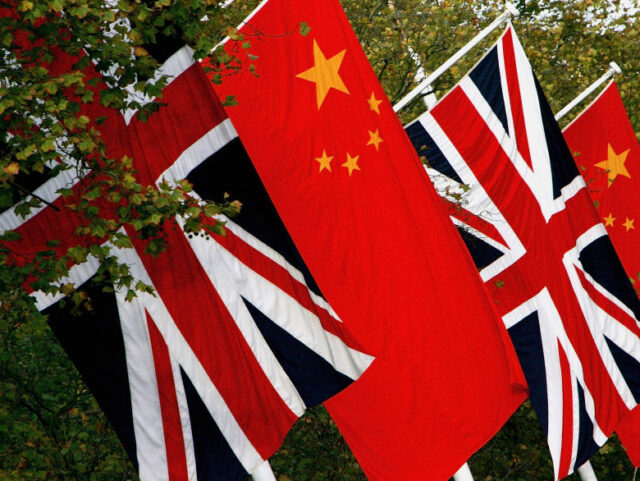The United Kingdom’s Prime Minister has outright accused China and a group of other “axis of authoritarian states” including Russia of undermining Western security and values.
A stump speech by British Prime Minister Rishi Sunak Monday morning may have featured his most strident remarks to date against Communist China, a country the British government had repeatedly refused to name as a malign actor.
The address seems like the starting gun on a general election campaign for a vote that hasn’t even been announced yet and portrays the world as an increasingly hostile place needing strong British leadership, which despite all evidence to the contrary, Sunak claims he will provide.
“The dangers that threaten our country are real, and are increasing in number”, Sunak said at the Tory-friendly Policy Exchange think tank today, repeatedly using the phrase through the speech itself and in questions afterwards: “An axis of authoritarian states like Russia, Iran, North Korea and China”. These states are “working together to undermine us and our values” and the country now faces “one of the most dangerous periods we have ever known,” he said.
While the speech was wide-ranging and hit a whole host of topics that would be expected from an election speech — including the economy, health service, and education — the Prime Minister repeatedly returned to security issues and military spending, apparently rejecting a truism long-held in Westminster that there are no votes in defence.
He said:
…because sadly we are living in the most dangerous time since the Cold War and I believe the next few years will be one of the most dangerous times our country has ever lived through, an Axis of authoritarian states; Iran, Russia, North Korea, China, acting in an assertive way that is threatening our values ang threatening our interests abroad and at home in a more interconnected world…
…I believe the next few years will be both the most dangerous that our country has experienced in a long time and the most transformational… everything that we’re seeing in the world from today, the last week, the last few months tells me that there’s an incredible dangerous time [coming].
The comments come just days after the British government all but accused China of hacking a Ministry of Defence database and stealing the private information of hundreds of thousands of past and present troops. All but accused being key because the government officially went no further than blaming the hack on the “suspected work of a malign actor”, while apparently briefing the friendly press behind closed doors that the perpetrator was China.
The reticence of the United Kingdom — and many, many other Western states — on speaking out in stronger terms about China’s aggression or at least deliberately undermining behaviour is understandable, in a sense, given the enormous reliance those economies have on Chinese exports.
First the Chinese Coronavirus lockdowns, then the Russian invasion of Ukraine and the Houthi Red Sea attacks exposed in stark terms for the first time in years the extreme dependence Western states have on exports of both finished products and raw materials. China is already the largest global trading partner for the European Union.
In 2020, a British government study found the country was reliant on China for 71 “critical goods” including drugs, electronics, and raw materials. ‘Project Defend’ was established in April 2020 as a “cross-government” project aiming to strengthen the resilience of the UK’s critical global supply chains”.
Reporting on its progress in January 2024, the government claimed “UK supplies of critical goods such as medicines, minerals and semiconductors will be safeguarded” and said it was working with major UK businesses to give them “regular updates on emerging supply chain risks”.
The government will set up a “Critical Imports Council”, it said, to work with businesses to “identify risks to critical imports and develop a plan of action”. Nevertheless, four years on, little appears to have fundamentally changed, and 21st-century life in the United Kingdom — and much of the rest of the West — remains dependent on imported Chinese manufactured goods, limiting the scope for the West holding China to account over its belligerent behaviour, just as Russian-energy dependent Germany was with Moscow before the Ukraine War.

COMMENTS
Please let us know if you're having issues with commenting.